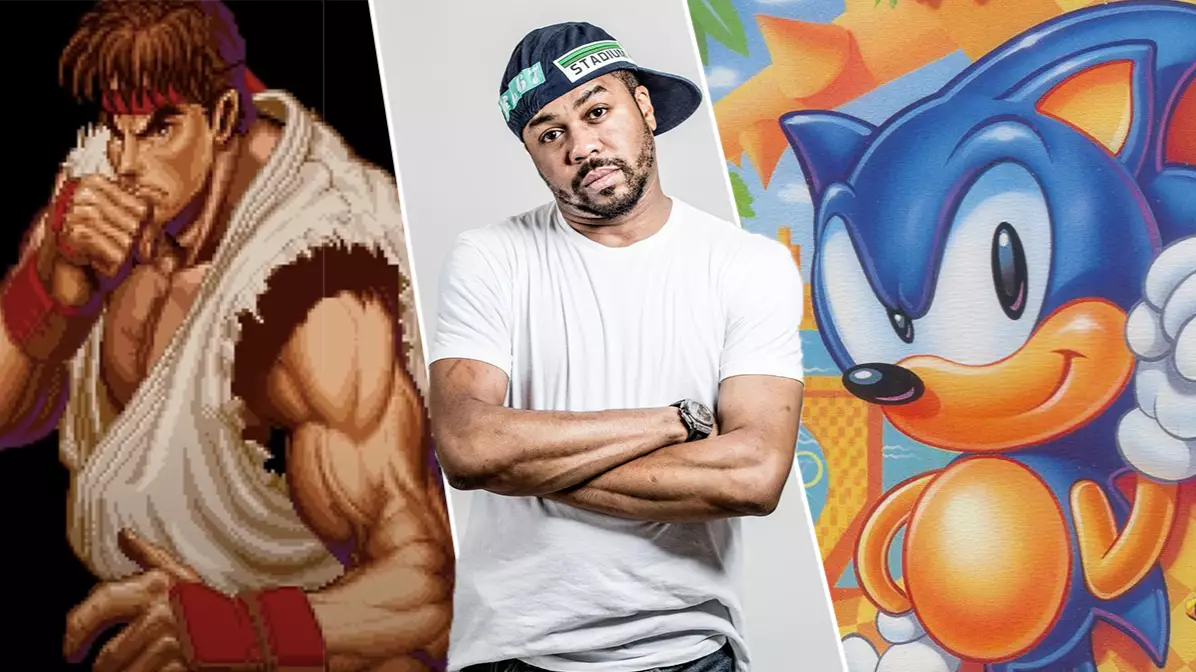
Words: Mat Ombler
There's a famous quote from the American filmmaker Jim Jarmusch that reads: "Nothing is original. Steal from anywhere that resonates with inspiration or fuels your imagination." I don't think that quote could be any more relevant to hip-hop, a genre that's carved some of its biggest hits by sampling drum beats and guitar licks from funk, Motown, jazz and soul records of the 1950s, '60s and '70s.
Hip-hop's success has been built on finding creative ways to flip old tracks, and it's only natural that producers would want to tap into the tunes that they grew up listening to when they were kids. But the 1990s and 2000s paved the way for a new generation of hip-hop producers that were taking just as much inspiration from Super Mario Bros., Donkey Kong Country, Final Fantasy and Chrono Trigger as they were from old James Brown or Isaac Hayes records.
Advert
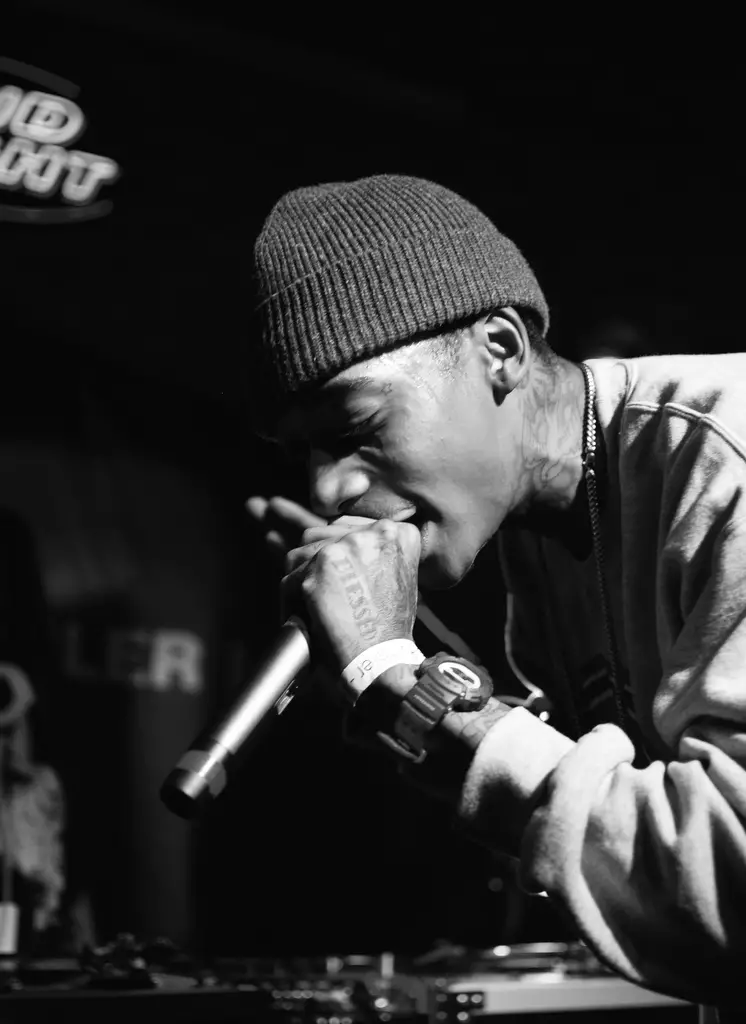
When he's not in the studio making beats for Wiz Khalifa, music producer Sledgren is dishing out fatalities in Mortal Kombat. Video games have always been a huge part of his life. Growing up in Michigan, if Sledgren wasn't in the arcades on weekends, he was renting games from Blockbuster and Hollywood Video, sinking as many hours into them as possible before he had to return them.
For Sledgren, the music in these games was often the most memorable aspect of the experiences. "I would bookmark songs when I was younger, thinking, 'This sounds incredible, but imagine what it would sound like if somebody was rapping or singing over the top of this,'" he says.
When Sledgren finally got his hands on music production software years later, those melodies that he'd archived as a kid ended up being the blueprints for some of his most popular tracks. He produced Wiz Khalifa's 'Never Been' (see below) and 'Never Been Part II' by sampling Yasunori Mitsuda's 'Schala's Theme' and 'Secret of the Forest' from Chrono Trigger on the Super Nintendo. Both tracks became a hit with JRPG players, quickly circulating on gaming boards and forums shortly after its release. "It triggers something within so many people, and when most people recognise that sample, they instantly become fans," Sledgren says.
Advert
There's another Wiz track, 'Ms Rightfernow', that samples 'Green Hill Zone' from Sonic The Hedgehog. "Whenever he [Wiz] used to come to my house and record, for the most part we would just play video games and make beats," Sledgren says. Wiz's affinity with video games was memorialised earlier this year in the 2020 Sonic The Hedgehog film, after he collaborated with Ty Dolla $ign, Lil Yachty and Sueco the Child to write the track 'Speed Me Up', which plays during the movie's end credits.
The French DJ and producer Teki Latex, former member of the French hip-hop group TTC, owes similar thanks to video games for shaping his approach to music. After picking up a Nintendo Switch, he quickly found himself infatuated with Animal Crossing: New Horizons. Every Saturday, he boots up the game and takes up a comfy seat near the campfire in his Animal Crossing village, taking in the luscious guitar licks of the game's resident musician, K.K. Slider. The anthropomorphic dog usually plays to a crowd of around ten people, but Teki helped him reach his biggest crowd ever when he sampled Slider's tune 'K.K. House' during his BBC One Residency set.
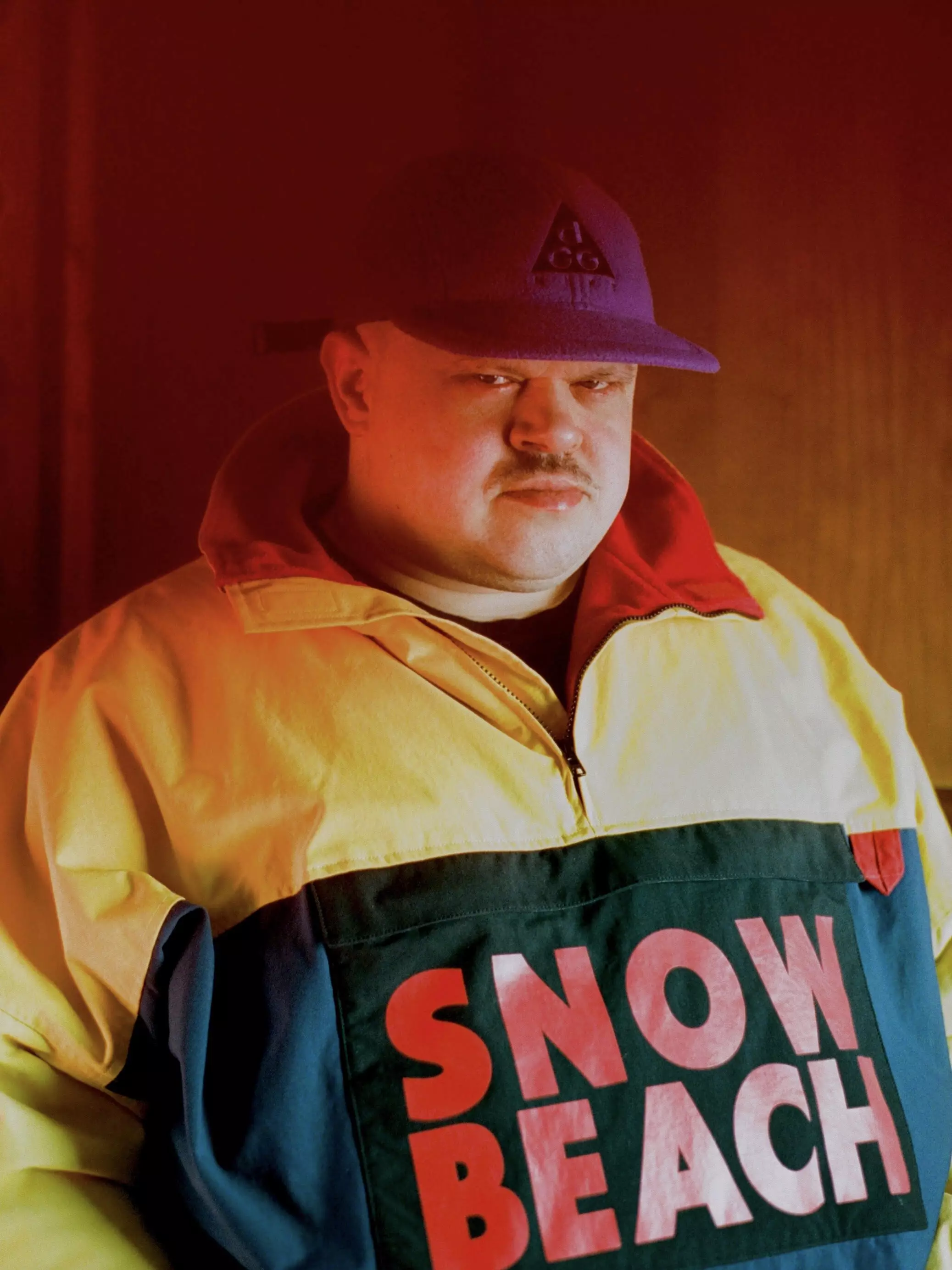
Advert
Teki is just one of many DJs and producers that have been influenced by video games. Last year he collaborated with video game music historian Nick Dwyer to create an hour-long mixtape blending melodies from Pokémon, Castlevania, Star Fox and Metroid with beats and acapellas from Outkast, Dizzee Rascal and Missy Elliott. Some of the underground's finest producers such as Kode 9, Ikonika and Mumdance also paid homage to their favourite video games by creating exclusive tracks for the mix, while grime MC Jammz contributed by spitting bars over a tune from a Commodore 64 game, Fist II. The end result is a barrage of floor fillers that wouldn't sound out of place if they were played in a nightclub.
Teki describes hearing the soundtrack for The Goonies II on the NES for the first time as a "life changing" experience, while also citing the Mario, Zelda, Gradius, Kid Icarus and Punch-Out!! (which has also been sampled by Statik Selektah) series as being equally influential.
"We live in a world where a lot of the producers today grew up playing video games," Teki explains. "It's only natural that video game music has influenced them just as much as rock disco or soul used to influence the producers of the early '90s."
That influence that has helped create some of rap and hip-hop's most iconic tracks. Eminem's 'Hellbound' samples 'Sacrifice' from Soul Calibur; Young Jeezy's 'Soul Survivor' borrows the Bunker music from Goldeneye 007; New Orleans hip-hop duo $uicideboy$ created 'Ugly' using the haunting melodies of Pokemon's Lavender Town area; and it's a fact that 'FACTS' by Kanye West wouldn't be as sick without sound effects from Street Fighter II in it.
Advert
Then there's Childish Gambino's 'Eat Your Vegetables' which beautifully slices 'Aquatic Ambience' from Donkey Kong Country, and the BasedGod Lil B built the track 'I Love You' by basically just slapping a beat over the top of 'Besaid Island' from Final Fantasy X. According to the music sampling website WhoSampledWho, video games have been sampled nearly 1,500 times.
As for what video game composers think about all of this, there are some obvious gripes about sample clearance (technically, all samples need clearing and video game composers should get a slice of that big money pie). But Goldeneye 007 and Banjo-Kazooie composer Grant Kirkhope believes the infiltration of video game sounds into popular music makes perfect sense for both listeners and music makers.
"I think that video games music is part of music culture now," he says. "Video games in general are such a huge thing that I guess it's not surprising that the music from games is bleeding into popular music. People play games for hours on end and hear the music for that entire time. It's secret music brainwashing!"
Advert
That secret brainwashing is hard to escape and means it's not just hip-hop that's paying tribute to video games, either. Jazz musician and band director Jon Batiste regularly plays jazz arrangements of Street Fighter and Final Fantasy tracks to millions of viewers on The Late Show with Stephen Colbert. Speaking of Final Fantasy, take a listen to Afrojack's EDM banger 'Rock The House' and tell me that isn't the same melody used in Nobuo Uematsu's 'The Landing' from Final Fantasy VIII.
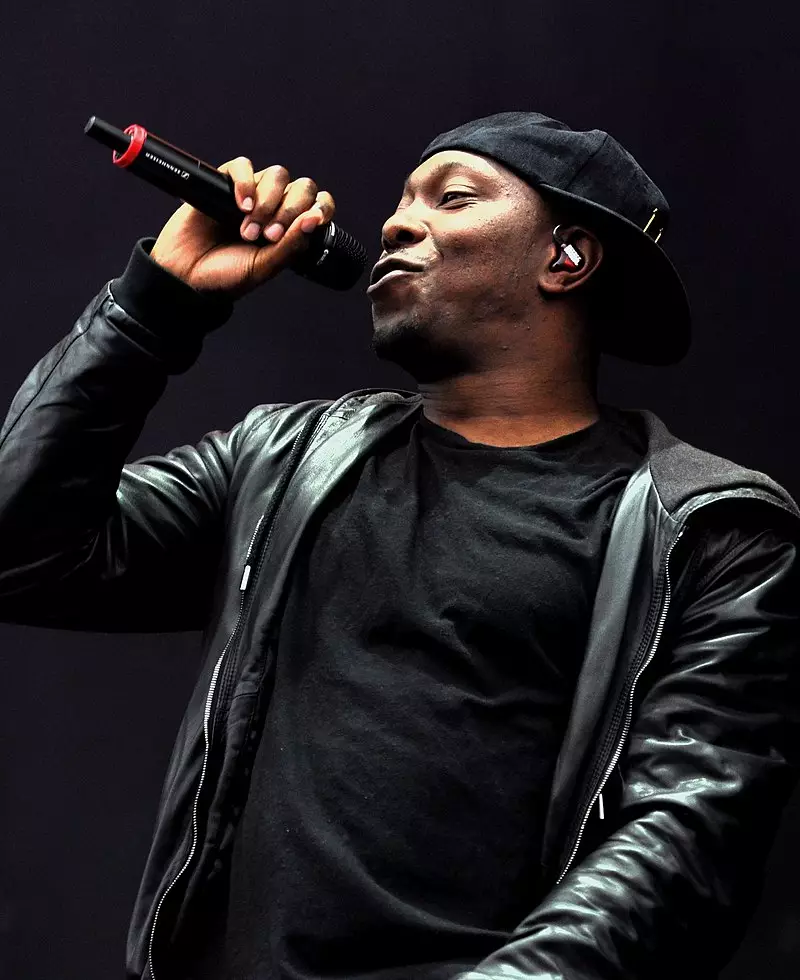
This video game influence has reverberated into a wide variety of music styles, but it's particularly noticeable within grime music. One of Dizzee Rascal's earliest beats, 'Street Fighter', samples Chun Li's theme from Street Fighter II, a game in a series that has deeply embedded itself within grime culture. Lethal Bizzle, JME, Big Narstie, Giggs, Merkie and even Stormzy have all referenced the famous fighting game series in their lyrics.
"If you go back to early grime like Boy in da Corner [Dizzee's debut studio album] you can hear this [Japanese gaming] influence; so many motifs and tropes that were rife in Capcom arcade games, be it Street Fighter II or Strider," explains video game music historian Nick Dwyer. "That sound palette and those sounds are incredibly iconic to so many video game players, but also to so many electronic producers of a certain age, too."
While there's a long list of musicians that have sampled video game music, the relationship isn't as one-sided as you might think. Video games owe just as much to hip-hop, and have paid homage in equal respect. 1989's Xenon 2: Megablast, developed by The Bitmap Brothers for the Commodore Amiga, featured the 1988 single 'Megablast' by Bomb the Bass as its title music, paving the way for a long list of video games that were tapping into hip-hop's popularity.
Basketball title Rap Jam: Volume One and multiplayer fighter Wu Tang: Shaolin Style were some of the earliest video games to let players take control of legendary rap icons as characters. Grand Theft Auto, NBA Street, Def Jam: Fight for NY and Tony Hawk's Pro Skater helped shape the music tastes of kids all over the world, introducing them to hip-hop music they'd never heard before. True Crime: Streets of LA deserves a special shout out, featuring over 50 original tracks from hip-hop's biggest stars, with the executive producer of Activision Worldwide Studios at the time saying the game represents the largest collection of West Coast hip-hop music ever assembled. And of course, who could forget PaRappa the Rapper on the PlayStation, a game that taught players that any of life's problems can be easily chopped in half with the positive power of rap.
These are all cool examples, but hip-hop music and a lot of electronic contemporary music in general wouldn't be the same if it wasn't for the 1999 release of MTV Music Generator (aka Music 2000) on the PlayStation. At the time of its release, Digital Audio Workstations (DAWS) weren't as easy to get hold of as they are now, but MTV Music Generator provided an accessible pathway into music production, providing curious producers with everything they needed to make their own beats at home without ever having to put down their PlayStation controller. Hudson Mohawke, Lex Luger and Sledgren all started out by making beats on the game.
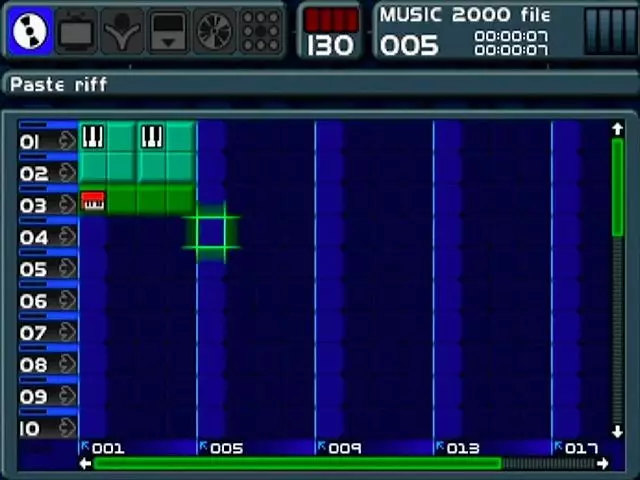
"There are two producers in particular that I know of who went on to become pretty successful, and their first records were done on MTV Music Generator," says music producer Just Blaze, whose own production credits include recordings by Kanye West (check out his production on 'Touch The Sky', below), Eminem, Beyoncé and Mariah Carey.
"I remember being in the studio one day for a Busta Rhymes session," he continues. "The kid next door was tracking a beat for an artist, and they had to bring a TV in for him so he could hook up a PlayStation and record the beat. I know there's a whole generation of kids who were exposed to that idea of music production for the first time using MTV Music Generator. It's hugely important."
While Blaze didn't gain his entry into the world of production through MTV Music Generator, he's another world-class producer that credits video games for influencing his sound. While he's quick to quash the rumour that he took his name from the Streets of Rage character Blaze Fielding (sorry we had to dispel that), Blaze's open praise for Yuzo Koshiro and Motohiro Kawashima's legendary Streets of Rage series scores almost led to him composing the soundtrack for Streets of Rage 4 (our review, here).
He was one of the first people that was approached to make music for the game, but negotiations with SEGA unfortunately fell through. While he heralds the Streets of Rage soundtracks for directly influencing an entire generation of kids and music nerds, other SEGA games have been equally influential for Blaze.
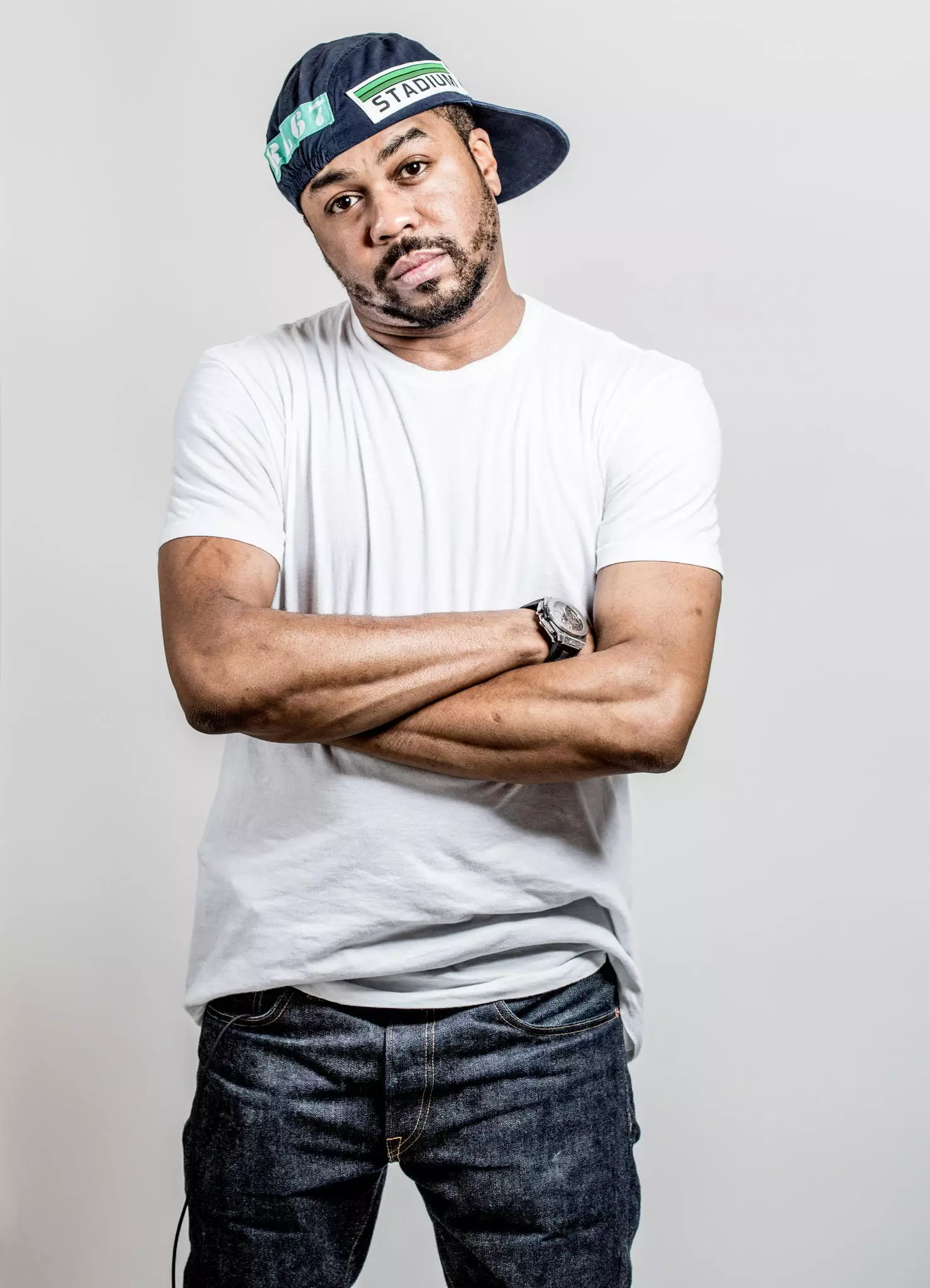
"At the same time I'm discovering that the drums from [Public Enemy's] 'Rebel Without a Pause' are from this James Brown 45 that my mother had in the attic, or 'Black Steel in the Hour of Chaos' is from this Isaac Hayes record, I'm then going downstairs and playing R-Type or Shinobi," Blaze says. "You might have to play a level 30 times before you get to the end of it, so those 30 times you're playing that level, that's 30 times you're hearing that same song or theme over and over again. So that stuff has been burned into my brain in the same way these soul and RnB records were that I was finding in my mother and father's collection. To me, it's all part of the same thing."
In addition to producing tracks for some of the music industry's biggest stars (Jay-Z, Cam'ron and Rick Ross also count amongst his collaborators, in addition to those above) Just Blaze has also composed music for a long list of video games, including NBA Live 2003 and 2004, NBA Street and Vol. 2, Def Jam Rapstar and Def Jam: Fight for NY, to name just a few. Games publisher EA has always been hot on the link between music and sports, with hip-hop having a particularly strong influence on basketball and Just Blaze believes NBA Street was one of the most important games for bridging the gap between video games and music.
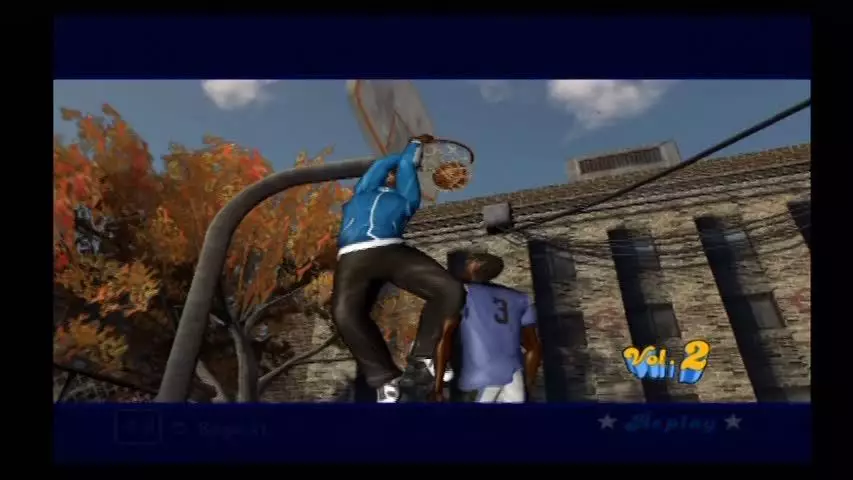
"I can't think of any earlier examples where a video game company brought in a roster of outside, established talent from hip-hop to collaborate on these games," Blaze explains. "So in the case of NBA Live, you had me doing the entire soundtrack, as well as all of the music and editing for the commercials. We also brought in artists to make or give us exclusive music for the game, and then those artists were hidden characters in the game."
After the success of NBA Street, Blaze says EA came back even stronger with NBA Street Vol. 2 to deliver the most authentic experience yet, one that perfectly blended hip-hop and basketball culture.
"They had Bobbito as the announcer and commentator for the game, and brought back Pete Rock and CL Smooth," Blaze continues. "They had 'Reminisce Over You' as the title track. It's all those little touches. They didn't just go and get whatever artists were hot at the time, or whoever had a big record; they actually went and said, 'Right, culturally, what makes sense?' We're featuring old-school players on old-school courts. It's kind of a return to old-school flare, that's why they got the 'Reminisce Over You' track,.and for a whole generation of kids, that was their first time hearing that song."
"I probably still get at least 20 interactions a week with people or from people on social media, asking if NBA Street will ever come back," Blaze continues, "or asking if they could just remaster it. And the amount of correspondence I got from people just asking for a remastered soundtrack... People tell me, 'Yo, I used to put the disc in the PlayStation and put it on pause just so I could hear the beats!'"
Before YouTube and Spotify, kids used to load up their favourite video games and dive into the audio menu to listen to soundtracks on repeat. I'm sure I'm not the only gamer out there that's wasted hours in the sound menus on Tony Hawk's Pro Skater, Super Smash Bros. Melee or Sonic Adventure 2 ('Aquatic Mines' is a personal favourite). Just Blaze was doing the same thing on the SEGA Mega Drive over 20 years ago.
"I just used to sit there and listen to the Space Harrier II soundtrack, same with Revenge of Shinobi and Sword of Vermillion," says Blaze. "So to hear people are still doing the same thing with my music nearly 20 years later, it's kinda mind blowing."
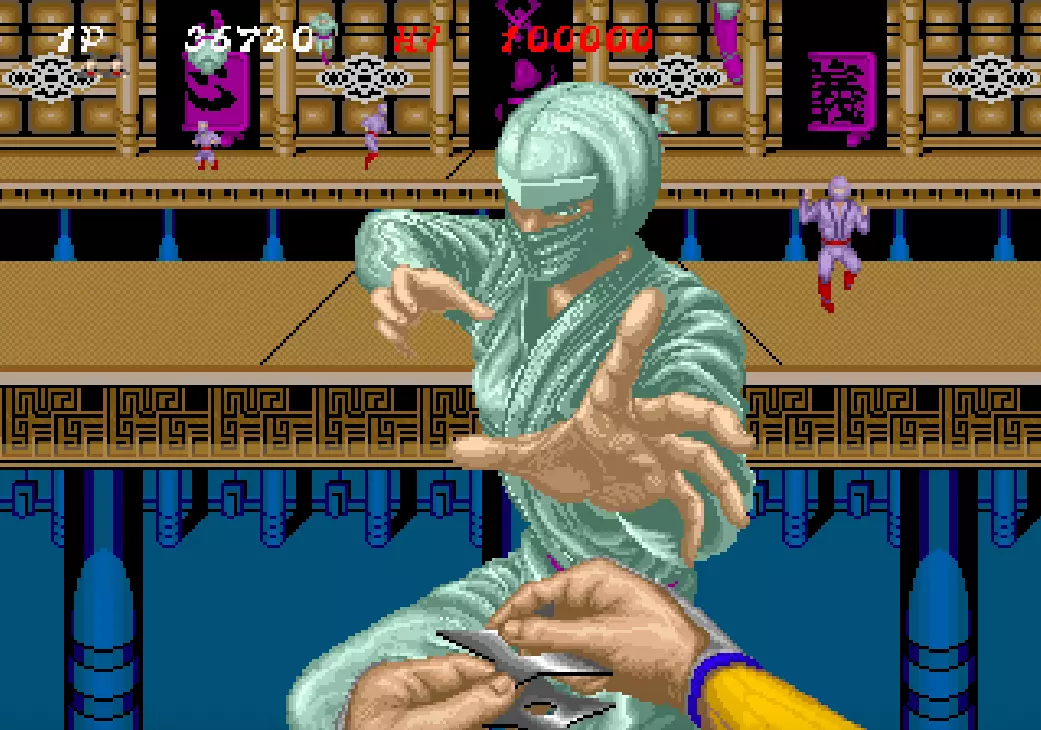
Fast forward to 2020 and hip-hop and video games are still colliding in extraordinary fashion, and with equally extraordinary results. When rapper Travis Scott entered the world of Fortnite to debut new songs from his album as a digital avatar, over 27.7 million unique players took part in the event. Similarly, when rapper Drake and professional gamer Ninja duelled it out in Fortnite, Twitch broke its record for the most-viewed stream by a single player. And with the music industry's revenue streams currently slashed in half due to the impact of coronavirus, it's likely we'll see more hip-hop celebrities like Snoop Dogg announcing their own video games in the future.
Nostalgia sells, and it's always a powerful tool in the arsenal of any creative. There's a reason that 'Boys' by Charlie XCX felt instantly familiar to so many people when they heard it for the first time, and it's thanks to the dopamine-inducing coin sound effect from Super Mario Bros. that's used throughout the track. For a lot of rappers and hip-hop artists, sampling a well-known video game can be a quick route to reaching thousands of new listeners; if you played the original Super Mario Bros. games, take a listen to 'Super Brooklyn' by Smif-N-Wessun and tell me it doesn't put a smile on your face.
"Part of hip-hop, especially in that era in the '90s, was finding creative ways to flip things that nobody else had flipped before," Just Blaze says. "So take a theme like Super Mario Bros., which is a theme that everyone knows, and get Smif-N-Wessun rhyming over the top - it's like a cheat code to a hit."
While clearing video game samples now is a lot more difficult now than it was over 20 years ago, Blaze is confident that the sounds of video games are only going to get more common in contemporary music, as software creators attempt to emulate the unique chip sounds of old video game consoles. Personally, I wouldn't be surprised if this paves the way for a weird sub-genre of chip hip-hop. Either way, the relationship between video games and hip-hop is only gonna get stronger.
"Even outside of hip-hop, when you look at the chiptune movement and the fact that so many plug-in manufacturers are making 8-bit and 16-bit synths based on the architecture of the old Z80 and processors, they're not stupid," Blaze says. "They're doing that for a reason. They know there's a whole generation of people who love to make music and grew up with those sounds."
The next time someone tells you that video games are a waste of time, point them in the direction of Eminem, Childish Gambino, Wiz or Kanye, and remind them that without video games, contemporary music would be a hell of a lot different.
Follow the author on Twitter at @MatOmbler, and GAMINGbible at. @GAMINGbible.
Photo credits:
Wiz Khalifa - HDShootsPhotos
Teki Latex - Noor Datis
Just Blaze - Copyright Free
Dizzee Rascal - Achim Raschka